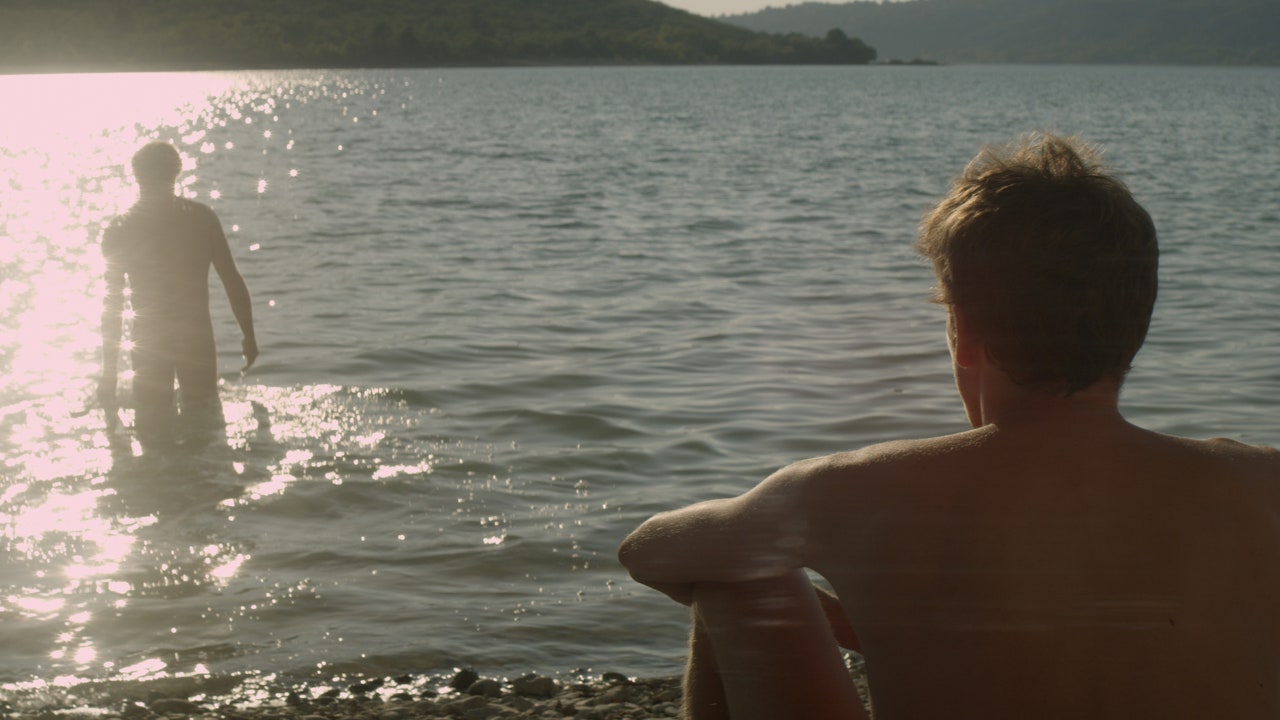
Although not a summer noir in the strict sense, this silent film classic by German director F. W. Murnau is the urtext for all subsequent cautionary tales about summer temptation. As the opening intertitle reads: “For wherever the sun rises and sets in the city’s turmoil or under the open sky on the farm, life is much the same; sometimes bitter, sometimes sweet.”
The film begins with a nameless woman from the city who visits the countryside for a summer holiday. After some weeks of lazing about, she meets and seduces a married farmer whose boredom has left him dreaming of a better life. While the two lounge at the edge of a lake, the woman, now his mistress, suggests to the man that he should drown his wife so that he can sell his farm and move away to the city. As with many future summer noir films, the body of water serves as a place of moral suspension, decadent daydreaming, and physical danger. The man agrees and takes his unsuspecting wife on a surprise boat ride. His plot, however, fails in mid-journey, and the two end up traveling on a tram from the country to the city, where the man pleads for his wife’s forgiveness. Together, they imbibe city life for a day and rekindle their love. Then, on the trip back to the country, a sudden storm overtakes their boat, and the wife appears to drown. The man returns to the farm and, in a rage, attempts to kill the mistress who has been waiting for him. But the wife reappears, having miraculously survived, and they kiss just as the sun rises over the countryside.
After nearly a century, Sunrise is a unique artifact of the silent era—more a visual poem than a film, just as it is suggested in the title. While the black-and-white palette and chiaroscurist shadowing bears all of the nocturnal hallmarks of Expressionist and traditional film noir, Murnau’s detailed attention to changing landscapes (from city to country, from farm to shore to lake) and environment (the cycle of day and night, images of thick fog, the sudden thunderstorm, the multiple sequences climaxing in sunlight) has an atmospheric sensitivity that anticipates summer noir’s own emphasis on climate and light. And while its fairytale-like tone and happy ending ultimately transforms what begins as a summertime murder plot into a humanist allegory, it should not distract from Murnau’s darker indictment of the dangers of idle daydreaming and exotic seductions, particularly those which mistake a tourist’s fantasy for a home.
Purple Noon (1960)
#Black #Sun #White #Heat #Dark #Cinema #Summer #Season






